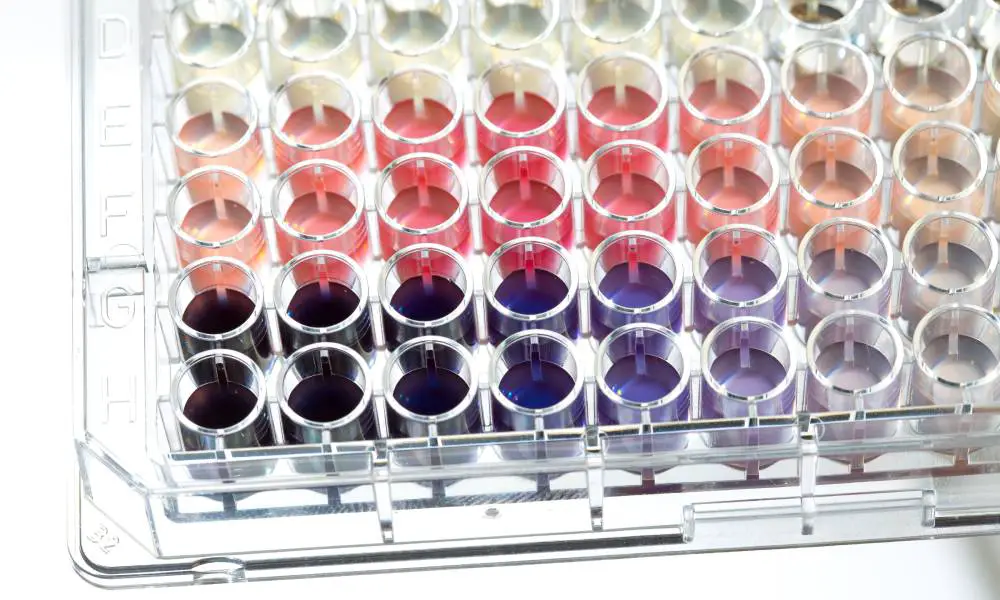

For those who don’t already know, immunoassays are laboratory procedures for detecting and quantifying specific biomolecules, such as proteins, hormones, and antibodies, through their interaction with specific antibodies or antigens. They are essential in various fields, including clinical diagnostics, pharmaceutical research, and environmental monitoring.
Understanding the different types of immunoassays and their unique applications can help professionals select the most appropriate method for their needs. This section will explore the main types of immunoassays, highlighting their principles, advantages, and common uses.
EIA, also known as enzyme-linked immunosorbent assay (ELISA), is a quintessential tool in immunoassay technology. It combines the specificity of immunoassay techniques with the sensitivity of enzyme-substrate detection as part of the essential ingredients of a multiplex immunoassay. Its standard format allows for multiple applications, like detecting antigens and antibodies in clinical and diagnostic settings and protein quantification in research lab protocols. ELISA’s modifiability makes it flexible but requires skilled manipulation due to the intricate procedures involved.
FIA harnesses the power of fluorescence to measure the presence of antigens or antibodies. This method achieves higher sensitivity than EIA, with lower sample volumes required and a wider dynamic range for quantification. This process is common in point-of-care diagnostics, providing rapid and accurate results.
RIA is a staple in immunoassay. Although its day in the sun is waning due to the hazardous nature of radioactive materials, we can’t ignore RIA’s sensitivity in detecting small molecule concentrations, particularly in hormones and drugs. It set the benchmark for immunoassay diagnostics that many current, safer methods strive to emulate.
CLIA is a relative newcomer compared to its assay brethren but is making big waves. With this technique, a lab technician examines the light produced from a chemical reaction, offering a broad range, excellent sensitivity, and cost-efficiency. CLIA is adaptable, automatable, and ideal for high-throughput applications in large-scale diagnostics and screening.
CIA is an advanced type of immunoassay. We can distinguish it by its ability to count particles bound with antigens or antibodies. By leveraging sophisticated detection equipment, CIA offers exceptional accuracy and sensitivity in measuring low-abundance analytes. It is particularly advantageous in applications requiring meticulous quantification, such as detecting rare biomarkers in oncology or evaluating therapeutic drug levels. CIA’s reliance on direct counting minimizes variability and enhances reproducibility, making it invaluable in both clinical and research settings.
There’s nothing worse than lighting a new candle and watching it sputter out, tunnel, or…
Discover how woven metal fabric transforms restaurant design with its versatility, from feature walls to…
Upgrading your workspace? Get inspired by design ideas for materials, lighting, and amenities, and tips…
In recent years, the global interest in peptides has surged due to their wide-ranging benefits…
Maximize your workspace without overspending. Explore practical ways to expand your office using smart layouts,…
Discover how to create a thriving STEM community through hands-on, collaborative projects that are perfect…